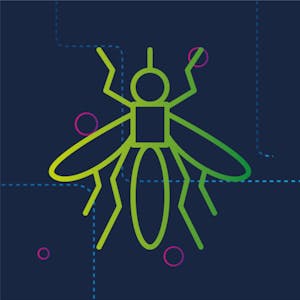Mathematical modelling plays a crucial role in public health decision-making. This course, offered by Imperial College London, equips learners with the skills to develop and implement infectious disease models using the programming language R.
Participants will gain practical experience in constructing valid mathematical models to capture the natural history of infectious diseases, calibrating models against epidemiological data, and creating projections for different intervention scenarios. The course is designed for individuals with a basic understanding of R and a familiarity with ordinary differential equations.
Upon completion, participants will be able to critically evaluate the strengths and limitations of mathematical models in addressing research and policy questions related to infectious diseases.
Certificate Available ✔
Get Started / More Info
This course comprises three modules: Developing the SIR Model, Interventions and Calibration, and Building on the SIR Model. Participants will explore fundamental concepts and practical applications of infectious disease modelling in R.
Developing the SIR Model module introduces participants to valid mathematical models capturing the natural history of infectious diseases. Learners will interpret compartmental models, describe fundamental processes driving the dynamics of an SIR epidemic, and develop a simple SIR model. The focus is on understanding mechanisms of susceptibility and incorporating them into the model under given parameters.
The Interventions and Calibration module delves into the relationship between models and real-world epidemiological data. Participants will learn to incorporate treatment or vaccination into an SIR model, perform model calibrations against time-series data, and recognize different approaches to model calibration in R. The module emphasizes understanding the impact of interventions on disease dynamics and optimizing model parameters to fit the data.
Building on the SIR Model module explores stochastic and deterministic models, population structure, and the dynamics of vector-borne diseases. Participants will distinguish between stochastic and deterministic models, design and simulate transmission models capturing population structure, and evaluate the assumptions behind the Ross MacDonald model. The module aims to equip learners with the skills to critically evaluate modelling studies and communicate their findings effectively to a scientifically literate audience.
Comparative Health Systems offers a comprehensive analysis of healthcare systems in various countries, providing insights into their strengths and weaknesses.
High Level Biocontainment for Healthcare Facilities is a 4-week course designed to equip learners with the skills and knowledge to safely care for patients infected...
Public Health Perspectives on Sustainable Diets explores the urgent need to address the sustainability of our food systems and the complex relationship between diet...
The Digital Media for Health Outcomes course equips health communication professionals with the skills to create and evaluate effective online health campaigns,...